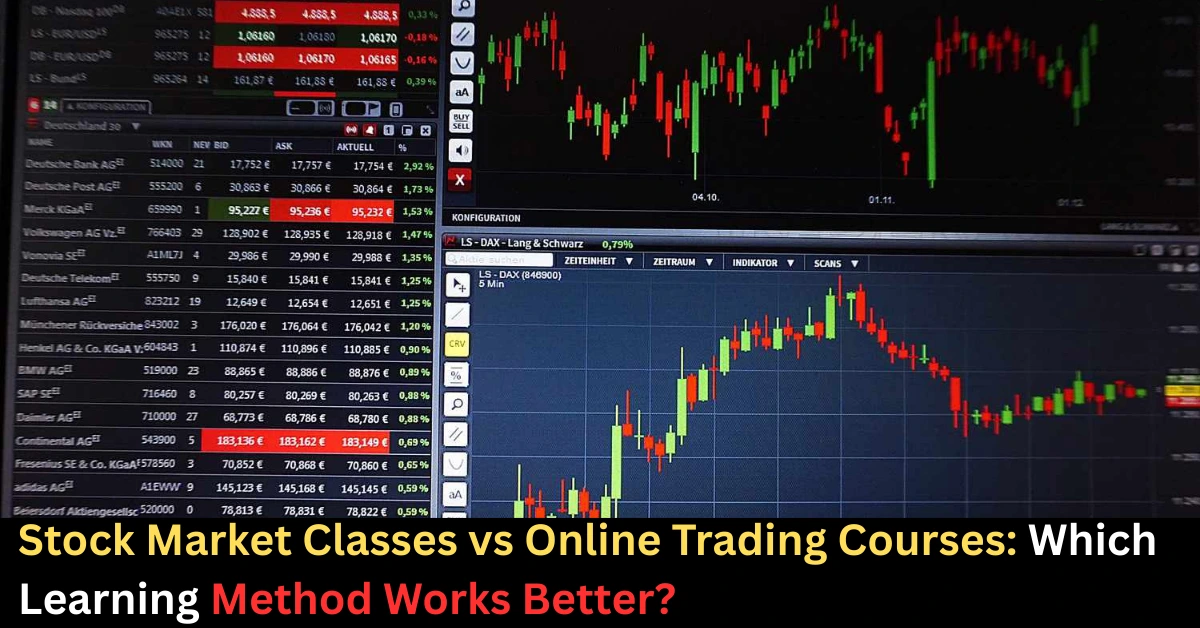For investors, it is very critical to understand the economic indicators in order to guide investor decisions in the stock market. Such indicators are associated with the health of an economy and will, in turn, drive investor sentiments into the market movements. It is through the use of such indicators that one can analyze the future shifts in the stock market and be able to adjust their strategies accordingly. This blog post discusses some of the important economic indicators and how they relate to the stock market.
1. Gross Domestic Product (GDP)
This refers to the total value of all the final goods and services produced within a country over some time, usually quarterly or annually. It represents the broadest measure that depicts the activities and health of the economy.
Impact on the Stock Market:
Positive GDP Growth: An expanding economy, typically accompanied by growing corporate profits. The former typically enhances investor confidence, which should translate to higher stock prices as companies will likely post better earnings.
Negative GDP Growth: Implies a slowing economy or actual recession. This can erode investor confidence, lowering stock prices on the expectation of reduced corporate earnings.
2. Unemployment Rate
It is the number of persons unemployed and actively looking for work expressed as a percentage of the labour force. It is a lagging indicator that expresses the performance of economics in the past.
Impact on the Stock Market:
Low Unemployment: Normally indicates a solid economy when companies are hiring, and the spending of consumers comes out good. This eventually generates higher corporate earnings and higher stock prices.
High unemployment tends to signal poor economic times and reduces consumer spending, which might lower corporate profitability. In such instances, decreased investor confidence thus gives birth to lower stock prices.
3. Inflation Rate
Inflation refers to the speed at which the general levels of goods and services prices are rising, thereby rendering a drop in people's purchasing power. This concept is normally measured using the Consumer Price Index, CPI.
Impact on the Stock Market:
Moderate Inflation: Stock markets can benefit from it as it is usually indicative of an expanding economy. Companies can pass on higher costs to consumers, thus holding on to profit margins.
High Inflation: This will prove to be negative as input costs rise and central banks might raise interest rates. Higher rates mean higher costs of debt for companies, cutting down profit and pushing stock prices lower.
4. Interest Rates
Definition: interest rates are set by the central bank of a country, like in the case of the United States, it is the Federal Reserve. It affects how much it will cost to borrow money. One of the leading rates is on federal funds.
Impact on the Stock Market:
Low Interest Rates: This rate sparks the interest of borrowers and investors, hence boosting the economy. That may mean higher stock prices as firms expand and profits increase.
High Interest Rates: The rise in the cost of credit might hit economic growth, and lower equity prices, as companies bear higher costs and reduced profitability.
5. Consumer Confidence Index
This measures the optimism prevailing among consumers regarding the economy at large and their financial situation. It measures the leading indicators of consumer spending that drive economic growth.
Impact on the Stock Market:
High Consumer Confidence: It implies consumers will spend more, which helps to boost corporate revenues and profits. This may increase stock prices as investors become more optimistic.
Low Consumer Confidence: This implies that consumer spending will be lower, hence lower revenues and profits. This may mean that it decreases the stock price since the investor may be more cautious.
6. Retail Sales
Retail sales measure the total receipts of retail stores and are a major component of consumer spending. It reflects consumer demand for finished goods.
Impact on the Stock Market:
Rising Retail Sales: Build an expectation of strong consumer demand, helping to boost corporate earnings and generate higher stock prices. Frequently, it is an indication of a healthy economy.
Declining Retail Sales: Weaker retail sales imply weaker consumer demand, which can foreshadow lower corporate earnings and falling stock prices. This could be an augur of economic weakness.
7. Trade Balance
The trade balance is the difference between what a country exports and what it imports. A trade surplus occurs when a country exports more than it imports. And, a trade deficit occurs when a country imports more than it exports.
Impact on Stock Prices:
Trade Surplus: This may be a plus for the stock market, as it would represent an economy that is competitive and has international demand for domestic products. This could mean higher corporate profits and therefore higher stock prices.
Trade Deficit: This is generally considered negative, as it would mean that the country is importing more than it exports. Such a situation speaks poorly of the economic competitiveness of the country and tends to push down stock prices.
Conclusion
Because economic indicators are very important measures of investor sentiment and trends in stocks, keeping a close watch on them is a sine qua non for investors to get an insight into the health of an economy and hence make well-deciphered investment decisions. No single indicator can help in forecasting or predicting the movements in the market; however, a holistic analysis of these metrics will help an investor sail through this complex and dynamic world of stock market investing.
Finally, understanding how the major indicators of the economy interact with the stock market generally provides investors with a view of the opportunities and risks in front of them so that they might devise workable ways of building resilient and profitable portfolios. For this very reason, you, whether a seasoned investor or just entering into the stock market, cannot afford to miss being well-equipped with these economic indicators to be able to achieve long-lasting financial success.









